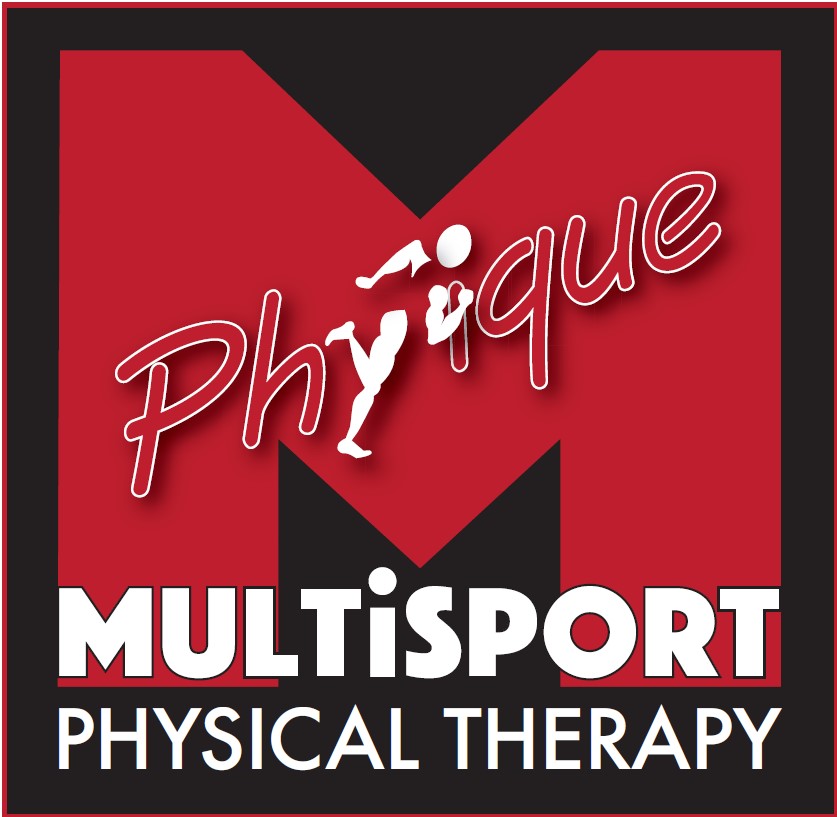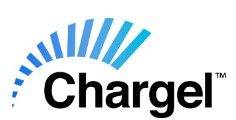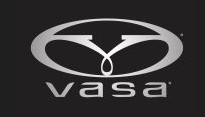JP Thebarge

I recently had the honor of talking triathlon with TCSD member J.P. Theberge who is now a 2x World Champion. J.P. won the Gold Medal at the ITU Triathlon World Championships in Vancouver, Canada 2008 and Gold Coast, Australia 2009. Please join me as we get to know this fast and humble man.
Craig: What was your sports background prior to triathlon?
J.P.: I wrestled in high school and college. It was where I was first introduced to endurance sports... we would often run 8 to 10 miles through the streets of Boston before practice, which in itself was an endurance feat all in preparation for 6 minutes of all-out exertion. There's a reason they call wrestling the "hardest 6 minutes of your life". After college I moved to San Francisco in an attempt to break into the world of advertising. I basically stayed in average shape by lifting weights and the occasional run on the treadmill. Not much of an endurance athlete. The only race I ever did in my 20's was the Bay to Breakers in San Francisco, which I felt pretty good about since I had never raced before.
Craig: How did you lose your leg and how did you deal with that?
J.P.: I had gotten rid of my motorcycle when I moved from Boston to California after college. Being without a bike was hard for me because it had been a big part of my self-identity. I promised myself I would get one as soon as I had a little money together. A tax refund a few years later and I suddenly found myself with enough money to fulfill my dream again... to become the "motorcycle guy" again. I was so excited to be riding again, and finally with a decent bike that I didn't have to push-start down Commonwealth Avenue while my girlfriend waited. It wasn't a Harley, but that would come, I reasoned.
One evening after finishing up at the ad agency, I had agreed to go see the movie Donnie Brasco with my roommates who were actually old buddies from high school back in DC. I was running late. I wasn't paying attention and thought that I had the right of way, when I actually didn't. On the corner of Broadway and VanNess, one of the busiest intersections in San Fran, I was broadsided by a car and thrown from my bike. I landed 25 feet into the intersection on my back. I almost got run over by another car.
That evening, at the hospital, the decision was made to amputate the leg before gangrene set in and threatened my life even more. My wife (who was my girlfriend at the time) was with me when I had to make the very difficult decision. A group of my buddies sat in the waiting room fretting. 3 days later I awoke staring at a bulky cast that ended abruptly below my knee.
The months that followed were grueling both mentally and physically. My world had been turned upside down. It affected every aspect of my life... my job, how I related to my friends, how I felt about myself, intimacy, my career plans, my relationship with my girlfriend, my view of the world, God, everything. I was out of work for several long, restless months which did not do much for my self-esteem. The cocktail of medications I was taking for nerve and phantom pain combined with the shock of the trauma had the unfortunate side effect of making me feel like I was losing my mind for a little while (more than my usual self at least).
The physical recovery was gradual and probably less of a challenge than the psychological recovery, although still difficult. Gradual steps forward, punctuated by steps backwards; new surgeries (a rather traumatic "revision" or in layman's terms, a re-amputation), going from no weight bearing on the prosthetic to light weight-bearing to one crutch, one cane and finally, one hungover morning after partying with my buddies, painless steps from the bedroom to the kitchen without my cane.
Once I could walk painlessly without crutches, I pretty much tried everything I could. About a year after the accident, I went to Lake Tahoe with friends with the plan of just hanging out at the rental, goofing off with my other non-skiing friend. After all my other buddies hit the slopes, my friend Woody and I decided we should try snowboarding. "Are you sure?" he asked. I didn't have anything to lose, I reasoned. We spent the day sliding down the slopes at Squaw Valley on our asses for most of the day. By the end of the day, though, we were carving turns and I learned that I really did not have any limits if I pushed myself.
Craig: What was the series of events that led you to triathlon?
J.P.: My accident forced me to go through a transformation and a reawakening of a belief I've always had that nothing is insurmountable. I realized that, although I liked the advertising business, this was not going to be my path. I sought out, applied for, and was offered a job that would exploit my international, multicultural background (growing up in Nicaragua and Chile and my huge extended family in Argentina). I went to work for a large multinational market research company with offices in San Diego. By moving to SD I was able to reinvent myself and start anew. No one knew I was disabled. No one felt sorry for me at work. No nagging self-doubt that my coworkers might not trust me due to the tremendous trauma I had gone through. This was "all me" and I threw myself into my work. I also married my college sweetheart, Gigi, who stuck by me throughout it all.
As I rose in the career ladder, I also started packing on the pounds and losing focus of what was important. My physical deterioration was analogous for what was happening in my life. I was focusing too much on work, traveling nonstop all over Latin America and the US and disregarding the important things in my life (my wife, my personal growth, etc.). I felt unhealthy and knew that it would affect my disability as well (since volume changes in the stump are a major cause of pain and discomfort). I was now about 190 pounds, the heaviest I had ever been (I wrestled 145 and 152 in high school and college so this seemed excessive).
So I decided to run around the block. "I can run, can't I?" I wondered to myself. I had rollerbladed extensively through hilly San Francisco, snowboarded Lake Tahoe and Vail, hiked in Costa Rica, played tackle football at my wedding in Lake Sunapee, New Hampshire (and shattered my prosthetic in the process). Could I run? Apparently, I could, just not more than a couple of blocks before I was winded. I tried again, the next day and went a little further. Then the next day and the next, until I was regularly running 3 or 4 miles. I really enjoyed it. It made me feel invincible. "I can run! This is awesome" I thought to myself. After reading Bob Glover's, the Competitive Runner's Handbook (and every issue of Runners World I could get hold of) I decided, "I'm going to try to run a half marathon."
It was 2002 and I paid my entry fee for the Camp Pendleton Half Marathon. I told everyone I was going to do it, so now I had to go through with it. When I finally ran it, I was amazed that I finished ahead of a number of Marines (mostly, the big muscular guys, not the svelte endurance junkies). I resolved that I would have to get better and beat some of the fast, skinny guys too!
Craig: What was your first triathlon experience like?
J.P.: After running a dozen or so half marathons and marathons, including New York, Boston, and the Rock and Roll Marathon, I was starting to run into a number of Challenged Athletes Foundation athletes. I went to a number of CAF events, and was pleasantly surprised. No self-pitying disabled people here. Just some pretty amazing challenged athletes who reminded me that there really are no limits, only self-imposed ones. Willy Stewart (also known as One Armed Willy) was very encouraging and thought I would be a good triathlete. So I signed up for the Mission Bay Triathlon. I did fairly well in the able bodied age group, which was surprising since I hadn't been cycling for very long.
My next triathlon was California Half Ironman, five months later. Here, I learned the importance of preparation. In transition, the alan wrench I use to loosen my prosthetic to switch from the bike to the run, snapped abruptly. I didn't have a replacement. I ended up hopping up and down the transition area asking other racers for a bike tool. Now I carry two.
I joined TCSD in those days to learn as much about triathlon as possible. The swims at Powerhouse Park were one of my favorite workouts... followed by a nice long ride. I can't get away with training until noon on Sunday mornings these days. Gotta get it done before 9am so I can be the family guy.
Craig: What are your strengths and weaknesses in the sport?
J.P.: To me the biggest challenge in the sport is staying consistent and staying on your plan, no matter what else is going in your life. I run my own business now and have three kids under four years old. I try to train at least once every day but life sometimes gets in the way. When I was training for World's I maybe missed a couple days out of three or four months of training.
My strongest sport is cycling. The only reason I know this is that my able bodied ranking is always higher on the bike than the other sports. I always feel fastest in the run, but my bike leg is always better. I've broken top 3 in my able bodied age group on the bike. I'm usually lower ranked in the run and my swim is the usually the worst of my disciplines. I train hard on the indoor trainer as well as on the road. I think that the lower impact of cycling allows me to push harder without as much tissue breakdown and pain on the stump. Running hard puts my stump through the meat grinder, so to speak, whereas cycling doesn't as much.
Swimming is my weakness and I've determined it is due to lack of ocean swimming. My pool swims are very good. I swim great in the pool, with the nice and straight black lane lines to keep me from swerving. 1:20 per 100m turns into a 1:50 per 100m on race day for some reason. I used to go to all the TCSD swims on Sunday morning at Powerhouse Park. Now, since I try to get my workouts done before the kids are up, it is hard for me to escape for 8am swims on Sunday morning. I will be getting more ocean swims next season, that's for sure.
Craig: Where have you placed at each of the ITU World Championship races you have done?
J.P.: I've raced in 4 world championships. Lausanne in 2006, Hamburg in 2007, Vancouver in 2008 and Gold Coast in 2009.
Lausanne was my first time at World's. My main competitor, Paul Martin was not present and I ended up taking Silver about 1:30 behind an Austrian below knee amputee, who I didn't even know was ahead of me. I thought I had won the race. This taught me to assess my competition before the race.
Hamburg was my second try. I spent the day before the race walking around Hamburg and catching up with an old friend of mine from Chile who I grew up with and was now living in Germany. I failed to properly assess the swim course and ended up missing a buoy and had to swim all the way back around it to avoid being DQ'd. I lost 3 minutes in the leg where I was already pretty slow. I took fourth. This taught me to scout the course BEFORE the race, rather than just jump in and try to figure it out.
Vancouver was a challenging race. People were being hospitalized with hypothermia and the swim course was cut short (and then cancelled, after my wave). I had an epic bike despite the very hilly course. I won this race and earned my first Gold medal.
Craig: The Gold Coast race just happened on September 12. Please take us through that race.
J.P.: Then, this last race in Australia, I had the most challenging field ever. Paul Martin (Team USA) and Rivaldo Martins (from Brazil) were longtime rivals who were now gunning for me. Both have world records in the Ironman and in Olympic distance. Both are cyclists who have competed in the Paralympics. Neither were present in Vancouver. I really didn't want my win in Vancouver to be a fluke just because the big boys didn't show up. I had to beat them in Australia so I could confidently say I was the fastest amputee triathlete in the world–something I didn't think I could say after last year's win.
Rivaldo smoked everyone out of the water and really was out of sight most of the race. He had a 6 minute lead on me. After the bike transition I felt very deflated because I hadn't caught Rivaldo and I was barely able to hold off the Austrian newcomer, Ernst Scheiber. He caught me and passed me a number of times and entered transition a second behind me. I saw Rivaldo at the first turnaround and he was so far ahead of me (about 3 minutes). People were yelling at me, including my wife screaming "get the Brazilian" while holding up my 2 year old. My team manager, Peter Harsch, kept telling me that I was closing the gap, but he wasn't even visible to me. Finally, at around mile 4, I finally caught sight of him and saw that he was slowing down. The last turnaround, he was closer than ever and I knew that it wasn't out of the question to beat him.
I won the race and beat Rivaldo by over one and a half minutes, having overcome a 6 minute deficit. It was awesome. Paul sort of blew up and didn't even place, which surprised me. Me, Rivaldo then Ernst, were on the podium at the award ceremony.
Craig: It takes a big sacrifice to get to your level. Why do you do it?
J.P.: I think it comes from trying to prove to myself that I am not less than other people just because I'm missing a limb. Obviously, those of us who are disabled are aware that we are not the same as other people. We are asymmetrical or different in some way and do not fit the definition of a "physically normal" person. I think pushing myself to compete at higher levels and ultimately at the level of able bodied athletes is my way of overcompensating for what subconsciously I feel is a deficit. I guess, deep down inside, I think that if I didn't push so over the top, people would just see me as the cripple guy. I basically have to train twice as hard as the able-bodied age groupers, just to get into the top 10 of my age group.
I also have a pretty competitive nature (grew up with two brothers, also very competitive) and always liked to push myself to see how far I could go. Being disabled makes me even more competitive because I don't want to be beat by the able-bodied athletes (or normies, as we affectionately call them in the disabled sports world).
Craig: What are your future goals for the sport?
J.P.: I'm one of 6 members of USA Triathlon's Paralympic Development Committee. This committee was created a few years back (and headed by hard-headed, determined arm amputee, Jon Beeson) to further the sport of triathlon and attempt to get it listed as an official Paralympic sport. We've come a long way and it looks like the sport will be official either in London 2012 or Rio 2016. Triathlon is the perfect sport to showcase the abilities of disabled athletes: it incorporates disparate sports and disciplines and shares the same course that the elite athletes will be using. At World's we've had up to 60 athletes competing from 20+ countries. Blind athletes (blinkies), one armed guys (wingers), above and below knee amputees (hoppers), wheelies (handcycle) and les autres (the others) comprise the field. It always blows me away when I see people drop out of a wheel chair directly into the water to swim their asses off and then handcycle and wheel their way through the course.
But in reality, my goal for the sport is to get as broad an acceptance for disabled triathlon (and athletics in general) around the world. My international background, being trilingual (Spanish, English and French) and quasilingual in several other languages has given me the ability to reach out to disabled athletes around the globe, but particularly in Latin America. We now have Argentines, Brazilians, Peruvians and Mexicans competing in Paratriathlon (as the sport is being officially called). It is a wonderful thing.
Craig: Who are your sponsors?
J.P.: I have not been as aggressive about getting sponsorships as I should. Nonetheless, I've been blessed with great local companies that have really bent over backwards to help outfit me and just to lend all round support. Nytro Multisport has been a huge supporter... Skip McDowell has really bought into the Paratriathlon movement and not only sponsors me but also supports other challenged athletes. The Quintana Roo Lucero I ride is one of many benefits of this sponsorship. I am honored to be a Nytro athlete and consider Skip a personal friend. For prosthetics, SCOPE, a local prosthetics and orthotics company has built my running legs free of charge for a number of years now, including two world championship wins. Randy Mason is my guy there and he is amazingly patient with my demands and my occasional flakeyness. Everyone at SCOPE has been really supportive of my efforts. I race on their team at the CAF Triathlon Challenge every year. Then there is Ossur... the company that makes the most high tech components, and most importantly, my running foot–the Flex Run... an amazing piece of carbon-fiber technology. Lastly, and certainly not least, Avia, the Southern California shoe company, provides me with all my trainers and racing shoes.
I would be remiss not to mention the Challenged Athlete Foundation for their tireless support of the sport of triathlon and disabled athletics in general. They also have been very encouraging and supportive of me personally. I have not been a grant recipient (as a fund raiser, I see it as a conflict of interest so I've never applied), but they have helped me get comped at races, as well as gotten me involved with some of their bigger sponsors like Accenture and Ford. They also gave me the motivation to even get into the sport. I try to give back to them as much as possible, by raising funds, mentoring, doing interviews and speaking engagements on their behalf. I confess I don't do nearly enough as I could, one of my goals for 2010.
But, really, beyond the sponsors, my wife and my kids have been the most supportive. Our third child was born this year right as I was really dialing up training for Nationals and World's. My wife had to deal with 3 kids, under 4 years old and a husband who trained, traveled and raced pretty much non-stop from April to September. I know I probably could have helped more and the fact my wife was supportive about my goals, tells you a lot about how lucky I am.
Craig: You seem to be a well travelled person. Tell us about some of the places you have lived.
J.P.: I lived in Latin America (Nicaragua and Chile off and on) until I was about 13 years old. My formative years (what I call the Stand by Me years) were spent in Chile. I spent summers in Argentina as a kid (where I have a large, extended family). I moved to DC for high school. I also did an overseas program in France when I was in high school.
Craig: What do you do for a living?
J.P.: I run a company called Cultural Edge Consulting that I started almost 7 years ago. We focus on market research both domestically and internationally (mostly Latin America) as well as specializing in the burgeoning Hispanic market. We do focus groups, tracking studies, segmentations, ad testing and all sorts of other market research for blue chip companies (automotive, beer, packaged goods, retail). I personally conduct focus groups for many of my bigger clients across the US and Latin America. It requires a lot of traveling (which is a challenge when you're training for triathlon). Most years I travel over 100,000 miles a year for my clients. I'm a 2 million miler on American Airlines (which entitles me to extra peanuts and the occasional upgrade :). The plus side is that I have trained in almost every major city in the US as well as in Latin America. The downside is that you can't ride when you're traveling on business. One upside of the travel is that it forces rest days into your schedule when your obsessive self might not want to rest.
Thanks for the opportunity to share a bit about myself to the group. Hope I wasn't too longwinded.
Craig: Thank YOU, J.P. This was an awesome interview as I knew it would be. Congrats on all that you have accomplished. The TCSD wishes you the best of luck in all your future endeavors.
Craig Zelent is a USA Triathlon Level 1 Certified Coach. Craig can be reached at 760-214-0055 or tricraigz@yahoo.com.








